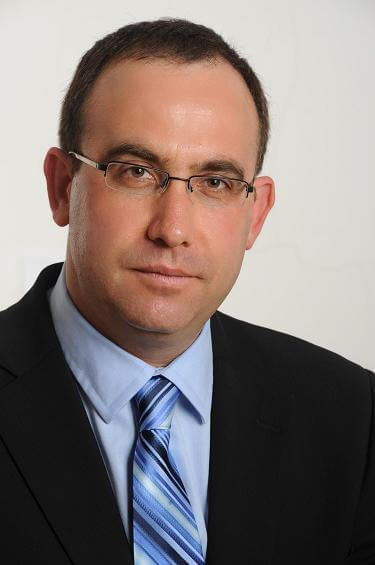The school will offer a full interdisciplinary study program from a bachelor's degree to a doctorate and will expand the activity that exists today in a joint center for biology and psychology for a bachelor's degree, and a path to a doctorate in neuroscience. Prof. Ehud Gazit, Vice President for Research: The school will be based on the uniqueness of Tel Aviv University - spread over many fields and a relatively high proportion of graduate students * The school will be headed by Prof. Uri Ashari from the Faculty of Life Sciences

Tel Aviv University announced at an event dedicated to science and medicine writers the establishment of Israel's first brain studies school starting next school year.
Prof. Uri Ashari, who currently heads the path to a doctorate in neuroscience, who will head the school, says that the brain remains the last bastion where there are still unclear issues, and that every time we think we have reached a certain insight, after a few years everything is shaken and we start over.
"Neuroscience is going to be part of the everyday life of each of us. If until now there have been technological revolutions and the cracking of the genome, we know how to transplant a heart, or build prostheses to replace limbs, we are only at the beginning of the research that will allow treatments and drugs for the brain. In the years to come, neurologists will lead personalized medicine in line with genes. We will be able to engage in preventive medicine of brain diseases, brain engineers will help in building a brain-machine interface, and brain economists will help integrate into the business world and communication and leisure systems.
"Just in the last five years, Tel Aviv University recruited ten researchers who joined 75 laboratories on campus and in the affiliated hospitals. The students have also recognized this trend and are voting with their feet, the second most requested program on campus after medicine in terms of student level is neuroscience. We are required to train a large number of neuroscientists."
The School of Neuroscience, which will train the future generation of neuroscientists, will offer a full curriculum starting from a graduate degree through a master's degree to an interdisciplinary doctorate in neuroscience. The competitive study program will attract excellent students from universities abroad and as graduates they will be able to work in industry and hospitals.
The school is built on programs that already exist and will be expanded - a graduate program in neuroscience that provides a graduate degree in biology and psychology with an emphasis in neuroscience and, as mentioned, the doctoral program that will be expanded. The admission threshold, above a 705 GPA, will be the second after medicine. In addition to the existing degree in biology and psychology, degrees will be developed that will be combinations of biology and computers, medicine and engineering and other programs.
Graduates will be able to pursue advanced degrees. The existing doctorate program in neuroscience that allows you to do rotations - work in laboratories in different faculties. Today it has about 30 students. During the coming years, about 180 undergraduate students and about 80 graduate students will study at the school.
Prof. Udi Gazit, Vice President of Tel Aviv University for Research explains that the school will fit in with the excellent requirements that brought the university to its high level, where for example it is 11th in the world in the number of citations per faculty member, and of course first in Israel and on the other hand it is also good in applied research and will testify to that The highest number of patents she registered.
"Another important figure out of the 29 thousand students more than 14 thousand graduate. Does not exist in Israel except for the Weizmann Institute where only postgraduates are studied. Another uniqueness of the university is the decentralization of the various content areas that exist in our university - from the humanities and social sciences to engineering, medicine, 15 affiliated hospitals, all on one campus. A large part of the activity represents the way we do interdisciplinary research. For example, interaction between psychology and engineering for projects of artificial limbs, between art and computer science, we can name among others the field of interactive films, a combination between archeology and materials research, the utilization of the latest methods in research to know where a pottery jar came from.
"The Tel Aviv University is the only one that is a partner in three of the centers of excellence, in one of which we are the leader and the largest partner, the other two centers - Cognition is a leading partner together with the Weizmann Institute, on the subject of diseases and genomics we are leading in collaboration with the Hebrew University."

4 תגובות
On the other hand, there is currently no university in Israel without a brain research center/track.
And what will all those brain researchers do? - Brain research centers will be opened in the USA!
"The Tel Aviv University announced at an event dedicated to science and medicine writers the establishment of the first school in Israel for brain studies starting next academic year."
About 20 years later from the Hebrew University.
About 10 years after Bar Ilan.
About 5 years after Ben Gurion.
And a few years after the Technion.